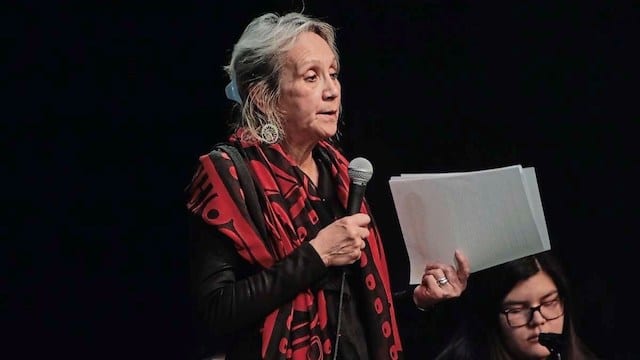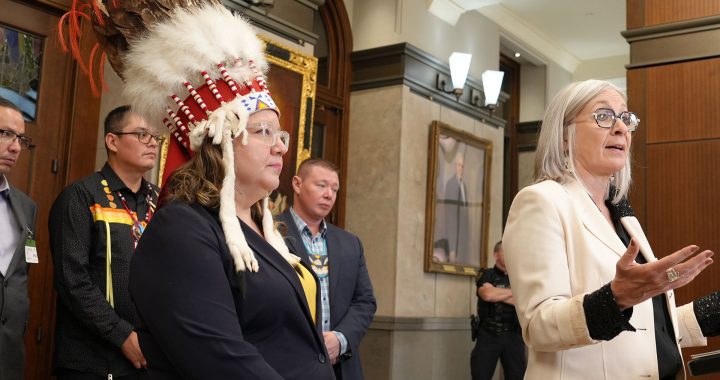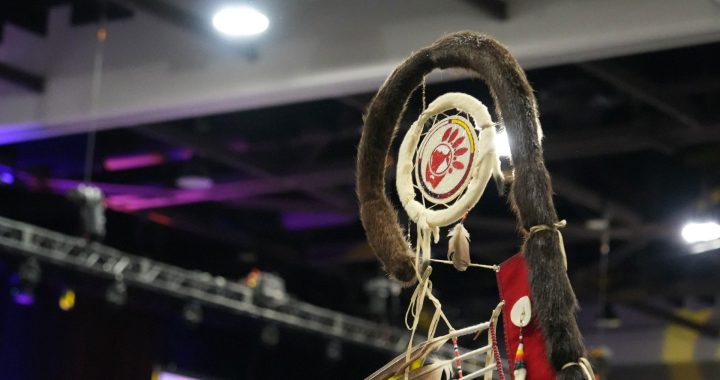
Cree Senator Mary Jane McCallum says too much is at stake for Bill C-262 to die on the Senate floor.
The former university professor and long time advocate for Indigenous rights tells APTN News that “by obstructing the vote the senate is feeding into the cycle of manufactured violence toward Indigenous peoples by not providing them the opportunity to move forward in a positive direction.”
McCallum’s comments come amid allegations by Liberal and independent senators who say Conservative senators are deliberately stalling the bill from going to committee, where it would be studied and potentially amended before returning to the senate floor for a third and final reading.
If passed, the bill would compel Canada to harmonize its laws with the United Nations Declaration on the Rights of Indigenous Peoples (UNDRIP), which details the global minimum standards for recognizing and respecting Indigenous rights.
Last week a coalition of Indigenous and human rights groups also accused Conservative senators of preventing the bill from going to committee.
Senator Don Plett, one of those alleged to have used senate rules and procedures to prevent Senator Murray Sinclair — the bill’s senate sponsor — from reading his right of final reply on April 9, has denied any antagonism to the bill’s passing second reading.
Once a right of final reply is read, a bill then moves on to the next stage of the legislative process — in this case, to committee.
Plett maintains that the Senate Aboriginal Affairs committee is currently dealing with government legislation — namely a pre-study of Bill C-92, which takes precedent over private members’ legislation — and therefore can’t address C-262 until it has dealt with the other bill.
C-262 was introduced by Cree MP Romeo Saganash in 2016 and was passed in the House of Commons in May 2018.
The next day it was read for the first time in the Senate.
Its second reading has so far spanned 10 sittings over six months.
Sinclair told APTN last week he feels “there’s been a lack of willingness to move” on the part of some senators.
Plett told APTN last week that he knows of other senators who want to address C-262 during the second reading, but he can’t say who they are due to confidentiality.
With the Aboriginal Affairs committee currently dealing with C-92’s pre-study, “why not give every senator an opportunity, if they wish to speak to it, to speak to it?” he said in a phone interview Wednesday.
Senator Lillian Dyck, who chairs the committee, told APTN last week that with Bills C-91 and C-92 — the Indigenous languages and Indigenous child welfare legislation, respectfully — still in the House of Commons and the committee’s pre-study of C-92 almost complete, there may be a window of opportunity in the coming weeks for the committee to begin work on the UNDRIP legislation.
“But until we actually get Bill 262 we will not actually discuss how we’re going to handle that, we won’t set up a witness list and plan when we will have people come, because we don’t have it yet,” she said.
Plett said he’s “not sure why people are trying to find a hidden agenda here, that something else is happening — it isn’t.”
But McCallum said the current situation, including concerns among some senators that the concept of free, prior and informed consent outlined in the U.N. Declaration would give Indigenous peoples a “veto” over resource development, needs to be understood in a broader context.
Within that context, she says, all senators should be working to ensure C-262 gets to committee as soon as possible and is brought back for a final vote.
For Indigenous peoples in Canada, “there continues to be no escape or protection from the adverse health and social cumulative impacts of resource extraction,” she says, explaining resource extraction “is intimately linked with the human and collective right of Indigenous women, men, children, families and community in their quest for self-determination.”
She says UNDRIP rightly protects Indigenous peoples collective rights, including the right to consent to, or refuse, events that impact them.
“The sad reality is that resource development continues to be taking place on our lands without our consent, and without adequate protection from the provincial or federal governments,” McCallum says. “The result is that this cycle [of] resource extraction continues to leave a group of people in a vulnerable and threatened position.”
She calls the debate around whether Indigenous peoples should be afforded the right to consent “fear mongering”.
“I have the right to say no, the right to say yes, and the right to say yes with conditions.”
McCallum says she’s “disappointed” by the “stalling tactics” but doesn’t name individual senators.
“As senators it is our duty to uphold and respect the democratic process,” she says. “This includes allowing all legislation the right to come to a vote. By denying this process this great chamber becomes a vehicle of structural violence.”
Plett says once the committee has its hands free after dealing with government legislation before it, he personally would not hold up C-262 from going to committee.
He also points out the Trudeau government “could have dealt with this a long time ago by making this government legislation,” and that the Liberals waivered in their support for the bill, noting former justice minister and attorney general Jody Wilson-Raybould had called the legislation “unworkable,” before eventually supporting it.
Partisanship aside, McCallum says that “for a bill that is so crucial to Indigenous rights,” passing C-262 “should be first and foremost in the thoughts of everyone’s minds and hearts.”
But first it must get to committee, and then back to all senators for a vote.
“The outcome of the vote is never guaranteed,” McCallum says, “but the opportunity to have it voted on is the crucial aspect. Blocking this potential advancement is unacceptable. These stall tactics are a blow to democracy and a blow to reconciliation.”
She says any effort to prevent the bill’s passing “is a sign of continued oppression and continued racism to keep a group under threat while supporting others to remain in control.”
Senators are on a break this week but will sit again beginning April 29, from which time there will be a total of eight weeks of sittings before they break for the summer and the fall election.











Oh good god…. how is that racist ? Government always moves sloe and at it’s own pace. The use of the word racist is thrown around too easy today. Shame on her.